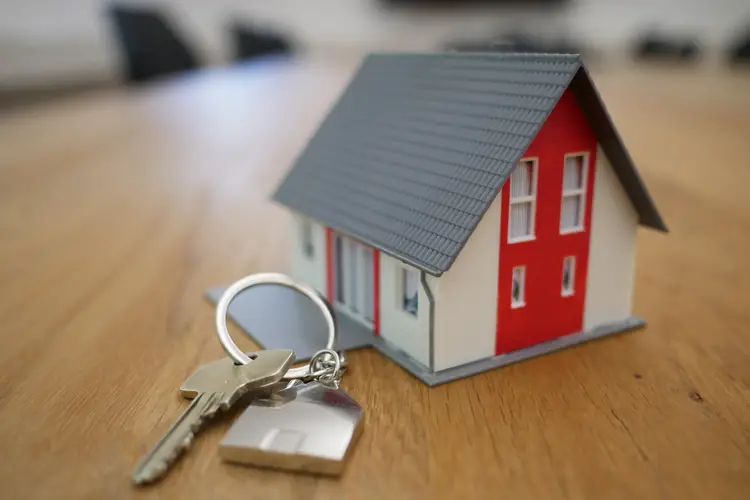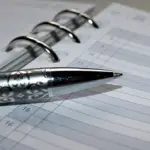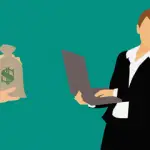
When you are dealing in property or real estate it’s important you understand one of the basics in terminology. Which is who is the buyer and is the vendor the buyer or seller. So if you get confused with terminology, don’t worry as you’re not the only one who struggles with this.
So when buying a property who is the vendor? When it comes to buying and selling property the legal definition of “vendor” is the person who is selling the property. Whereas the “purchaser” is the person who is buying title to or an interest in the property from the vendor (seller).
When you’re buying or selling property you may find the estate agent or your solicitor refers to ‘The Vendor‘. Which is only one of a number of terms you will need to get to grips with. In the conclusion to this article I explain a simple way of how to remember who is the vendor.
What is the difference between purchaser and vendor?
All property sales have two parties to the contract, which is the purchaser and the vendor. The vendor is the ‘person‘ who is selling the property. Whereas the purchaser is the ‘person‘ who is buying the property.
The ‘person‘ in each case can be an individual, a partnership, a trust or a company. Also, the ‘person‘ can be more than one person. Which means there could be more than one vendor disposing of the property when a property is jointly owned.
But equally there could be more than one buyer if there’s more than one purchaser acquiring the property.
Phrases you may come across with the term vendor when buying and selling property
There are a few phrases and additional terms you may come across when dealing in property that relate to the vendor (seller) and the purchaser. These are as follows:
Vendee real estate definition
Another way to describe the buyer or purchaser of a property or real estate is the vendee. So the term vendee is the opposite of vendor. This is similar to the terms lessor and lessee when talking about leasehold property.
Draft details awaiting vendor approval meaning
When you instruct an estate agent to sell your home they will send you a letter. This letter is accompanied with draft details about your property for your approval.
These draft details will include the asking price along with a brochure. This brochure will contain a description of your house and a selection of photographs of the exterior and interior of your home. The brochure may also include a floorplan too, which is an internal layout of the property.
As the vendor of the property, it is extremely important you check these details thoroughly. Any mistakes must be highlighted and sent to the agent to correct.
You may want to have a quick read about how to choose an estate agent or why do estate agents valuations vary so much. In the first article it lists eight important questions you should ask all estate agents before you sign their contract. In the second article you may be interested to read this section: Do estate agents overvalue properties?
What does awaiting vendor mean?
If you hear the expression “awaiting vendor“, all this means is the person is waiting on information or an answer from the vendor or seller of the property.
This could be the estate agent is waiting for the vendor to agree or disagree an offer put forward by the purchaser. It could equally mean the vendor’s solicitor is waiting on the vendor to sign contracts.
Vendor solicitor meaning
The vendor’s solicitor is the conveyancing firm acting on behalf of the seller. The purchaser’s solicitor will liaise and agree the sale contract terms with the vendor’s solicitor.
They will also raise questions to satisfy themselves on behalf of the purchaser and purchaser’s lender that they will get good title to the property on completion.
What is a vendor mortgage?
A vendor mortgage (also referred to as Vendor Take-Back Mortgages) means the vendor lends the money to the purchaser to buy the property instead of a bank. Vendor mortgages make it possible for buyers who can’t get conventional lending to buy property.
If the purchaser borrows from the vendor they still need to find the deposit. Unless the vendor is providing a 100% vendor mortgage.
There are also vendor-funded deposits, which means the seller only funds the deposit for the buyer. In this case the buyer will need to borrow the balance of the purchase price. But not all mortgage lenders are happy with vendor funded deposits.
Conclusion to when buying a property who is the vendor
Finally, to help you remember when buying a property who is the vendor. Think about a ‘vending machine‘, which is a machine that sells or ‘Vends‘ drinks or confectionary. But in property sales the vendor is the name given to the seller of the property. Who if you like ‘vends‘ the property to the buyer.
So next time you ask the question “who is the vendor when buying a house“, if you always think about vending machines (i.e. a selling machine), this should help you to remember.
I hope you’ve enjoyed this article about about when buying a property who is the vendor
If you’ve enjoyed this article on when buying a property who is the vendor please share it on your favourite social media site.
Also, if you have any questions, please feel free to comment below too. Alternatively, if you need more help, please feel free to contact us on our contact us page here. Or join the discussion and ask your question in the property forum.




